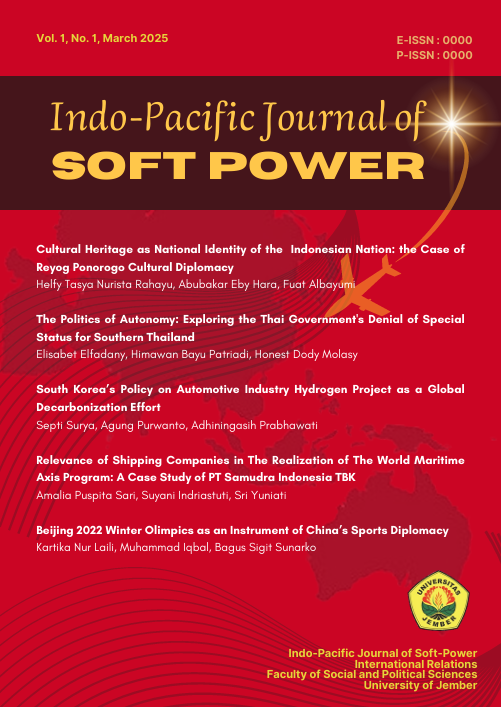The Politics of Autonomy: Exploring the Thai Government's Denial of Special Status for Southern Thailand
Keywords:
Separatism, Special Autonomy, Southern ThailandAbstract
This article examines the complex political landscape surrounding the Thai government's failure to implement special autonomy in Southern Thailand, a region characterized by ethnic diversity and historical grievances. The southern provinces, predominantly inhabited by Malay Muslims, have long sought greater autonomy due to perceptions of marginalization and socio-economic disparities. The study delves into the historical context of the autonomy movement, highlighting key events that have shaped the political dynamics in the region. The Thai government's rejection of these autonomy demands is analyzed from various perspectives, including national security issues, political stability, and the preservation of national identity. The article argues that the government's stance is influenced by a desire to maintain centralized control and prevent the fragmentation of the nation-state. Furthermore, the report explores the implications of this rejection on local governance, community relations, and ongoing conflicts in the region. The findings suggest that the refusal of special status not only exacerbates tensions but also hinders potential pathways to peace and reconciliation. This comprehensive analysis provides a nuanced understanding of the political complexities and historical underpinnings of the autonomy movement in Southern Thailand. This research underscores the need for inclusive policies that address historical grievances and promote social cohesion, essential for long-term peace and stability in the region.




